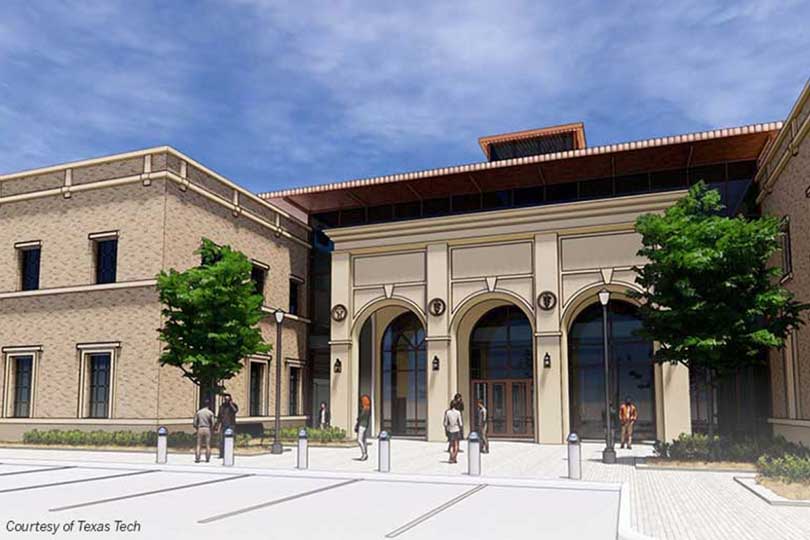By Jessica Domel
Multimedia Reporter
Texas is one step closer to the opening of its second veterinary school.
The Texas Higher Education Coordinating Board approved the Doctor of Veterinary Medicine Degree program with a major in veterinary medicine for the Texas Tech University School of Veterinary Medicine.
“That is a major milestone that we have been working toward for the last five years, and it truly is historic,” Dr. Guy Loneragan, dean of the School of Veterinary Medicine, told the Texas Farm Bureau Radio Network. “We are extremely excited.”
The move came after the Texas Legislature and Gov. Greg Abbott approved $17.35 million for operational needs at the school and a groundbreaking in September 2019.
“We’re very thankful to the board. We’re obviously very thankful to the Legislature for providing the money that’s needed to start the program, the governor for approving it and now the board for providing the authorization to implement that degree program,” Loneragan said.
The next step, according to Loneragan, is achieving accreditation from the American Veterinary Medical Association.
“We have engaged the national accreditors, and we had a very productive visit with them when they came out and inspected the site and our plan in April,” he said.
The accreditors will visit again at the end of spring 2020.
“At that time, we’ll be asking for that first step of accreditation, and that will then allow us to welcome the first class of students in the fall of 2021,” Loneragan said. “So we’re very much on track. We’re working very diligently on all of the steps forward, and it truly is an exciting time.”
The School of Veterinary Medicine is being constructed north of Texas Tech University’s Health Science Center in Amarillo.
Since the university system announced its intent to build a veterinary school, support has come in from across the state.
“That support has grown, and it grows by the day. It’s been a grassroots effort from the beginning. We’re so thankful for everyone who stepped on board,” Loneragan said. “Obviously, the donors and the Amarillo community that donated the funds needed for the construction, but also the support from industry, whether that be the Texas and Southwestern Cattle Raisers Association, Texas Cattle Feeders Association and the Texas Farm Bureau.”
Veterinarians interested in being part of the program are also contacting the school.
“We will partner with really high-quality, world-class veterinarians all across the state to help deliver the experiential learning for the students. This has a lot of benefits for what we’re trying to achieve,” Loneragan said. “First of all, the students get out into the rural regional communities of Texas for their experiential learning. So, not only are they learning the clinical skills in a real-world setting, but they’re also learning what it’s like to be part of a rural or regional community and how they contribute in so many different ways.”
Two dozen veterinarians have already signed agreements to work with the school, but they’re not the only ones showing interest.
Students in high schools and colleges from across Texas are emailing the university asking when the school will open and what they need to do to apply.
“It will be in the fall of 2020 that we begin the admissions process, and we start processing all of the students’ applications and then interviewing and welcoming that first class in the following fall,” Loneragan said. “It’s going to be a busy fall starting in 2020, but it’s going to be an exciting time.”
When the School of Veterinary Medicine officially opens, it will train students to treat both large and small animals.
“As we have worked with veterinarians and the veterinary industry all across Texas, they have made it clear—whether that’s a regional community like Tyler or Victoria or Amarillo, or it’s the more rural communities like Beeville or Hereford or Sulphur Springs—they need a small animal vet as much as they need a large animal vet,” Loneragan said. “So, it is a comprehensive program to train a veterinarian to deal with all the major domestic species, but really focused on how we attract students from small regional agricultural communities, how we give them the curriculum that helps them be successful and then experiential learning back into those communities.”
The inaugural class for the Texas Tech vet school is expected to be about 60 students in fall 2021.

